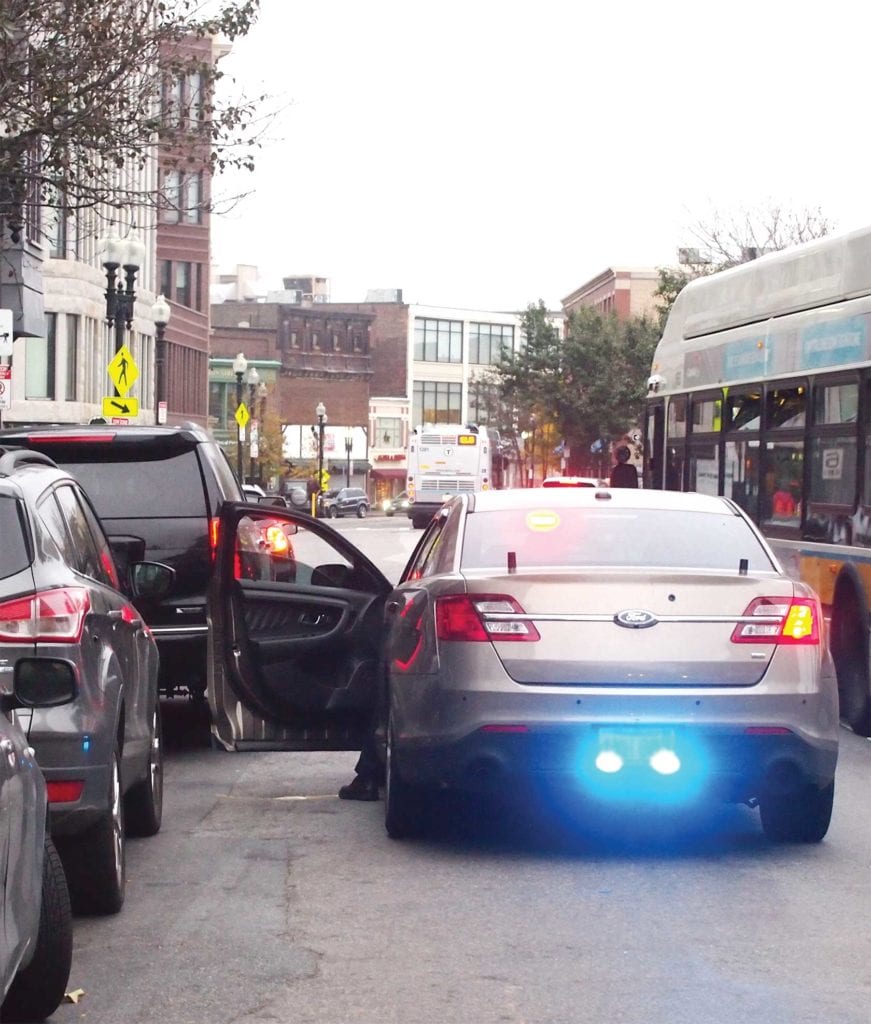
A bill that would outlaw use of hand-held phones while driving in Massachusetts remains stalled due to legislators’ concerns about increased racial profiling that could stem from increased enforcement.
Distracted driving caused by cellphone use is a leading cause of auto accidents and fatalities in Massachusetts and across the country. Currently, 20 states have hands-free driving laws barring drivers from using cell phones while operating a moving vehicle.
Both the Massachusetts House and Senate overwhelmingly passed versions of a hands-free bill, both of which contain provisions requiring police departments to record the race of people officers stop, along with information on whether they were written a citation.
Police departments in Massachusetts, including the Boston Police Department, have shown substantial disparities in the percentage of black and Latino drivers stopped by police. A 2004 study, culled from data the Legislature required Massachusetts police departments to report out between 2001 and 2003, found 18 communities in the state with high levels of disparities between the percentages of black and Latino drivers and white drivers stopped by police. In a 2004 study, blacks in Boston were found to be 26 percent more likely to be stopped than whites were.
But since 2004, there have been no statewide studies of the program.
“We don’t know whether we’ve made progress,” said Rahsaan Hall, director of the Racial Justice Program for the American Civil Liberties Union of Massachusetts.
While the state Legislature required departments to record and report on such data during that three-year period, it no longer does so.
Members of the Massachusetts Legislative Black and Latino Caucus worked to insert provisions for data collection into the hands-free legislation to better understand how the increased enforcement would affect black and Latino drivers.
“I think it’s very important for us to pass the hands-free bill,” said state Rep. Russell Holmes. “But I don’t think it should come at the cost of police stopping black and brown people disproportionately.”
The law voted on by House and Senate members would allow police to pull over drivers if officers observe them using a cell phone while operating a motor vehicle. Up until Dec. 31, 2020, police would be able to issue warnings only. Thereafter, they would assess a $100 fine for a first offense, a $250 fine for a second offense and a $500 fine for a third offense. A ticket would not result in an insurance surcharge.
The language currently in the Senate version of the bill would require all police departments to record data on the race of all people pulled over in traffic stops, then report that data to the state annually. During a debate on the House floor, legislators advanced an amendment that would require the state’s secretary of Public Safety to study alternative methods for collecting data on race.
While the Senate and House disagree on data collection, Holmes says the issue is make-or-break for Caucus members.
“If you’re disproportionately stopping black and brown people, I want to know about it,” he said.
Hall said the data collection would be instrumental in curbing racial profiling.
“We can’t manage what we don’t measure,” he said. “We know racial profiling is happening, but in order to address it, we need to pinpoint where it’s happening. If we do nothing, it’s certainly not going to get better.”







